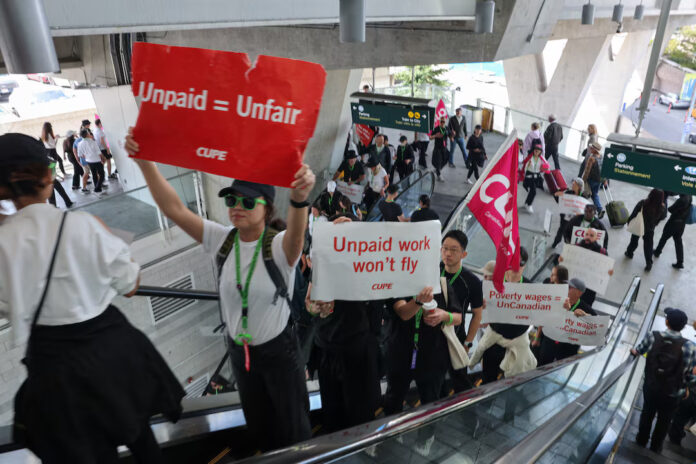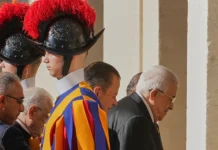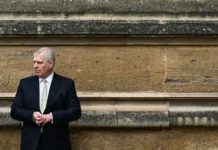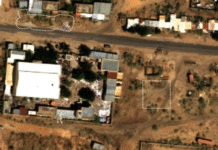
Air Canada’s fleet of hundreds of aircraft remained grounded Monday as striking flight attendants defied a government-backed order to return to work, escalating a showdown between the country’s largest airline, its cabin crews, and Prime Minister Mark Carney’s government.
The Canadian Union of Public Employees (CUPE), which represents 10,000 cabin crew, rejected a Canada Industrial Relations Board (CIRB) directive to resume work and enter binding arbitration.
Instead, the union invited Air Canada back to the negotiating table, calling the order “unconstitutional” and insisting on a fair contract settlement.
The dispute, which has disrupted travel for roughly 130,000 daily passengers, centers on wages and pay for ground duties such as boarding passengers. Flight attendants currently earn only when planes are in motion, a practice long criticized within the industry.
“They are right,” said Italian traveler Francesca Tondini, stranded at Toronto Pearson International Airport. “Even if I don’t know when I’ll fly, I support them.”
Air Canada, a member of the Star Alliance, called the union’s defiance “illegal” and delayed its planned restart of operations until at least Monday evening. The airline argued that arbitration would provide stability while ensuring service resumed.
The government now faces limited but weighty options: asking courts to enforce the CIRB order, recalling Parliament early to legislate an end to the strike, or encouraging renewed talks. Legal experts warn that Ottawa must tread carefully.
“The Supreme Court has ruled governments must be very cautious when restricting the right to strike,” said Dionne Pohler, professor of dispute resolution at Cornell University.
The strike has sparked broad public debate, with many Canadians voicing sympathy for flight attendants online. Their push mirrors recent gains by U.S. flight attendants at American Airlines and Alaska Airlines, who won pay for boarding time, a provision CUPE is now demanding.
With Parliament not set to return until September 15, and crews refusing arbitration, the standoff has entered uncharted territory for Canadian labor relations, leaving passengers and the aviation sector in limbo.
Written By Rodney Mbua


















